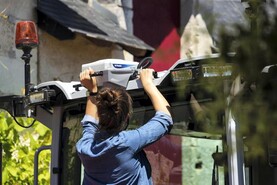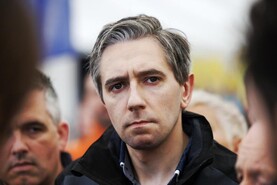The Guardian newspaper last week announced it is changing the language it uses around environmental issues. “Climate change” now becomes “climate emergency, crisis or breakdown”, with global warming now being described as “global heating”.
This should not upset anyone, particularly as our Dáil formally identified a climate emergency last month. The broader issue of language and its power is of more concern.
The Guardian newspaper is one of the most influential in the world. From its Manchester origins, it became the leading paper of the left in the UK decades ago. It is now one of the leading online publications globally. It has in recent years courted finance from philanthropic funds, receiving over $6m from the US. There has also been a separate $5m donation from the Bill and Melinda Gates Foundation.
Of direct interest to farmers is the $886,000 received from the Open Philanthropy Project for a series on “Factory Farming and Farm Animal Cruelty”. Their reporting of the recent story about Irish calves being abused in a French lairage was part of this series.
The growing influence of the right-wing media has been linked to the rise of populist politics, to Farage and Trump, Brexit and political disruption
It’s good that this financial linkage is up-front and transparent. The problem is that small groups of rich people can create an agenda that is driven by their convictions, their concerns, perhaps their prejudices.
The growing influence of the right-wing media has been linked to the rise of populist politics, to Farage and Trump, Brexit and political disruption – which looks a lot like chaos.
Part of this agenda is the denial or downgrading of climate change, with the US under Trump stepping away from the commitments made in the Paris Agreement.
If the extremists take control of the media and the message, the voices of moderates can be drowned out. This is very dangerous for family farms.
Bad news stories like the calf export one, when stacked up on top of each other, will skew the public mindset about Irish farming
With one side pushing factory farming on an industrial scale with no regard for animal or environmental welfare, and the other variously opposed to pesticide use, animal transport, and even animal farming full stop, it’s pretty polarised.
It’s important that Irish family farming is not painted by the left as being part of, or little better than, the hard right. Bad news stories like the calf export one, when stacked up on top of each other, will skew the public mindset about Irish farming, particularly if there is no counterbalancing narrative about all that is good in what we do.
The image of Irish farming is fundamental to its future. We must fight to protect it.






 This is a subscriber-only article
This is a subscriber-only article









SHARING OPTIONS: